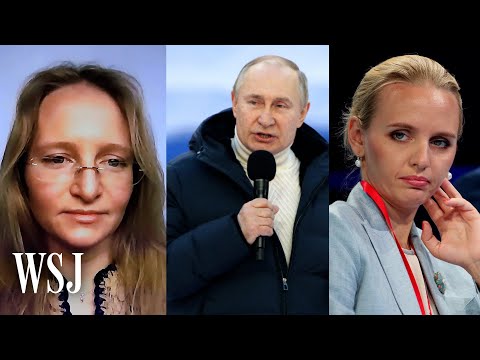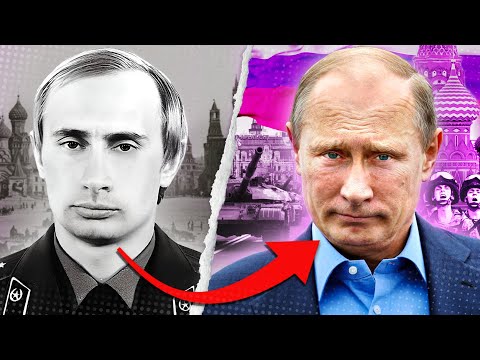How has Putin’s rule impacted freedom of speech in Russia?
Have you ever wondered how **Putin’s rule** has impacted **freedom of speech** in **Russia**? As a researcher on this topic, you are well aware of the complexities and challenges that come with analyzing the effects of Putin’s leadership on the ability of individuals to express their opinions freely. Let’s dive into this issue through a listicle framework to uncover the various ways in which **freedom of speech** has been influenced in **Russia** under **Putin’s rule**.
1. **Media Control**: One of the most significant impacts of **Putin’s rule** on **freedom of speech** in **Russia** is the tight control he exerts over the media. **Independent news outlets** have been shut down, journalists who criticize the government face threats and intimidation, and **state-owned media** are used as propaganda tools to promote **Putin’s**’s agenda. This control over the media landscape severely limits **freedom of speech** and **freedom of the press** in **Russia**.
2. **Internet Censorship**: **Putin’s** government has also cracked down on **online** **freedom of speech** through **internet censorship** laws. **Websites** that criticize the government are often blocked, and **social media** platforms are monitored to prevent the spread of dissenting opinions. **Online activists** and bloggers who speak out against the government face harassment and even imprisonment, further stifling **freedom of speech** in the digital realm.
3. **Harassment and Violence**: **Critics** of **Putin’s** regime are often subject to harassment, intimidation, and violence. **Journalists**, **activists**, and **political opponents** have been targeted with smear campaigns, physical attacks, and even **assassinations**. This climate of fear and repression makes it extremely difficult for individuals to speak out against the government without facing serious repercussions.
4. **Legislation**: **Putin’s** government has also passed **laws** that restrict **freedom of speech** in **Russia**. **Laws** targeting **”extremism”** and **”fake news”** are often used to silence dissent and **criminalize** **criticism** of the government. **Journalists** and **activists** risk facing **legal consequences** for expressing their opinions, leading to self-censorship and a chilling effect on **freedom of speech** in the country.
5. **International Influence**: **Putin’s** rule has also had an impact on **freedom of speech** beyond **Russia**’s borders. **Russian** **disinformation campaigns** and **cyberattacks** have been used to undermine **democratic** processes in other countries and **silence** **critics** of the **Russian** government. This global influence further highlights the challenges faced by those seeking to protect **freedom of speech** in an increasingly **authoritarian** world.
The Iron Grip: How Russia’s Government Suppresses the Freedoms of its Citizens
Have you ever wondered how Putin’s rule has impacted the freedom of speech in Russia? Let’s delve into the iron grip that the Russian government has on its citizens and how it suppresses their fundamental freedoms.
**1. State-Controlled Media:** One of the ways in which Putin’s rule has impacted freedom of speech in Russia is through the control of media outlets by the state. The government has cracked down on independent media, leading to a lack of diverse perspectives and alternative viewpoints. This control over the media allows the government to shape the narrative and suppress any dissenting voices.
**2. Internet Censorship:** Putin’s government has also tightened its control over the internet in Russia, implementing strict censorship laws and monitoring online activities. Social media platforms and websites are closely monitored, and individuals who criticize the government or express dissenting opinions are often silenced or face repercussions. This censorship limits the freedom of expression and restricts access to information.
**3. Harassment of Journalists:** Journalists in Russia face intimidation, harassment, and even violence for reporting on sensitive issues or criticizing the government. Many journalists have been attacked, imprisoned, or even killed for their work.
This climate of fear discourages journalists from investigating important stories and speaking truth to power.
**4. Political Repression:** Political opposition in Russia is often met with repression, with opposition leaders facing harassment, arrest, or even exile. Putin’s government has used tactics such as fabricated charges, legal persecution, and smear campaigns to silence dissenting voices and maintain control over the political landscape. This repression stifles political debate and undermines democracy.
**5. Surveillance and Control:** The Russian government has implemented extensive surveillance measures to monitor its citizens’ activities and suppress any form of dissent. With an intricate network of surveillance cameras, online monitoring, and intelligence agencies, individuals are constantly under scrutiny, leading to self-censorship and a culture of fear.
In conclusion, Putin’s rule has had a detrimental impact on freedom of speech in Russia, with the government tightening its grip on the media, internet, journalists, political opposition, and overall society. The suppression of fundamental freedoms has created a climate of fear and silence, where dissenting voices are marginalized and opposition is met with repression. It is essential to shed light on these violations of human rights and work towards promoting freedom of speech and democracy in Russia.
The Impact of ‘Glasnost’: How a Russian Word Revolutionized Freedom of Speech and Press
Have you ever wondered how Putin’s rule has impacted freedom of speech in Russia? **The Impact of ‘Glasnost’: How a Russian Word Revolutionized Freedom of Speech and Press** delves into this complex issue, shedding light on the transformation of the media landscape in Russia. Let’s explore the key points that highlight the changes in freedom of speech under Putin’s rule.
One of the most significant impacts of Putin’s rule on freedom of speech in Russia is the tightening of control over the media. **State-owned media outlets** have become increasingly dominant, shaping public discourse and limiting the diversity of viewpoints available to the Russian population. This control over the media has led to a suppression of dissenting voices and a narrowing of the space for independent journalism to thrive.
Furthermore, **Internet censorship** has become a growing concern in Russia under Putin’s rule. The government has implemented strict regulations on online content, cracking down on websites and social media platforms that are critical of the regime. This has restricted the ability of Russian citizens to access information freely and express their opinions online without fear of reprisal.
In addition, **journalists and activists** who speak out against the government face harassment, intimidation, and even violence. The climate of fear created by these tactics has had a chilling effect on freedom of speech in Russia, leading many to self-censor out of concern for their safety.
Overall, the impact of Putin’s rule on freedom of speech in Russia has been profound, with **Glasnost** taking on a new meaning in the context of increased censorship and control. As we continue to navigate the evolving media landscape in Russia, it is essential to monitor these developments closely and advocate for the protection of freedom of speech and press in the country.
Poll Reveals Surprising Number of Russian Citizens Support Putin’s Leadership
Have you ever wondered about the impact of Putin’s rule on freedom of speech in Russia? Well, a recent poll has revealed a surprising number of Russian citizens actually support Putin’s leadership, despite concerns about freedom of speech in the country. This raises questions about the level of support for Putin’s government and its policies among the Russian population.
One key aspect to consider is how Putin’s rule has affected freedom of speech in Russia. While some argue that there are limitations on free expression in the country, others believe that Putin has maintained stability and security, which has led to his popularity among certain segments of the population. The poll results indicate that a significant number of Russian citizens are willing to support Putin’s leadership, even if it means sacrificing some freedoms. This sheds light on the complex relationship between political leadership and individual rights in Russia.
Overall, the poll revealing the surprising number of Russian citizens supporting Putin’s leadership highlights the nuanced dynamics at play in the country. It prompts further exploration into the factors influencing public opinion and political decision-making in Russia. As the debate continues around freedom of speech and political leadership, it is essential to consider the diverse perspectives and experiences of Russian citizens to gain a comprehensive understanding of the situation.
In conclusion, **Putin’s** rule has had a significant impact on freedom of speech in Russia. The tightening of **media** **controls**, **censorship**, and **persecution** of journalists and **opposition** figures have severely restricted the ability of individuals to express dissenting views and criticize the government. **However**, there are still **some** brave individuals and **organizations** that continue to push back against these **restrictions** and fight for **freedom** of speech in Russia.
**Frequently** **asked** questions about **Putin’s** impact on freedom of speech in Russia include:
– **How** has **Putin** justified **restrictions** on **freedom** of speech in Russia?
– **What** are the **main** **challenges** facing journalists and **media** outlets in Russia today?
– **Are** there any **laws** in Russia that protect **freedom** of speech, and if so, how are they **enforced**?
– **What** **role** does **social** **media** play in **circumventing** **censorship** in Russia?
In **summary**, **Putin’s** rule has had a **negative** **impact** on **freedom** of speech in Russia, but there are still **individuals** and **organizations** fighting for **change**. It is **important** to continue **monitoring** the situation and **supporting** those who are **working** to protect **freedom** of speech in the country.



Could Putins restrictions on speech actually be protecting Russias interests? Just a thought.
Putins rule has strengthened Russias unity and stability, despite limiting freedom of speech.
Putin is a modern dictator bringing stability to Russia. Lets discuss!